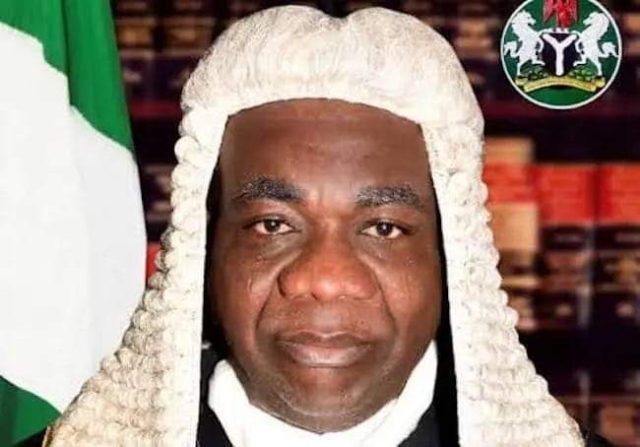In a groundbreaking development shaking the foundations of Nigeria’s legal sphere, the Supreme Court delivered a momentous decision in the case of Murtala Yakubu Ajaka versus Ahmed Usman Today, Justice Emmanuel Agim, representing the esteemed Supreme Court, unveiled a verdict that reverberates throughout the nation’s electoral landscape.
At the heart of this judicial saga lies the contentious issue of electoral inspections, a matter of profound significance in ensuring the integrity and fairness of democratic processes. Justice Emmanuel Akomaye Agim, in his meticulously crafted judgment, meticulously dissected the rulings of the Court of Appeal dated March 1, 2024. With surgical precision, he underscored critical flaws in the lower court’s reasoning, exposing the erroneous interpretation of legal statutes.

Central to the Supreme Court’s decision was its unwavering affirmation of the trial tribunal’s authority to order inspections, as enshrined in Section 146 of the Electoral Act 2022. This pivotal provision, Justice Agim emphasized, serves as a bulwark against electoral malpractice, empowering tribunals to uphold the sanctity of the democratic process.
Yet, amidst the legal intricacies and statutory interpretations, one glaring truth emerged: Ahmed Usman Ododo’s deliberate absence from the mandated inspections. By shunning this crucial aspect of the electoral dispute resolution process, Ododo unwittingly inflicted a fatal blow to his own case, as Justice Agim aptly noted. The Supreme Court’s verdict, therefore, serves as a stark reminder of the legal adage: “He who seeks justice must come with clean hands.”
Moreover, the dismissal of Ododo’s cross-appeal further solidifies the Supreme Court’s unwavering commitment to upholding the rule of law and preserving the integrity of democratic institutions.
This resounding judgment reverberates far beyond the confines of this specific case, sending a clear message to stakeholders across the political spectrum: the judiciary stands as the ultimate arbiter of electoral disputes, ensuring that justice prevails above all else. As the echoes of this landmark decision reverberate across the nation, it serves as a beacon of hope for those who champion the principles of transparency, accountability, and fairness in Nigeria’s electoral process.
In the annals of legal history, today’s ruling will undoubtedly occupy a prominent place, shaping the trajectory of future electoral disputes and reaffirming the foundational principles upon which Nigeria’s democracy stands.
Report by Muhammad Ahmed









